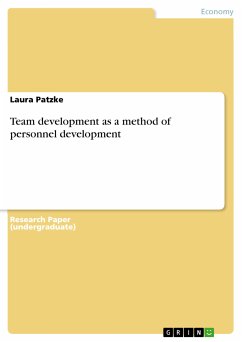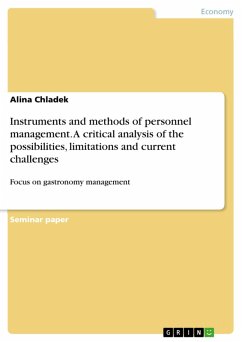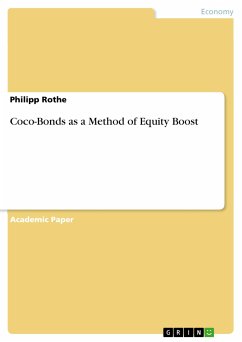Research Paper (undergraduate) from the year 2013 in the subject Leadership and Human Resource Management - Miscellaneous, grade: 1,3, University of Applied Management, language: English, abstract: Whether in private or professional life, as soon as people get together, groups can develop, sometimes on a voluntary basis, sometimes as a result of external pressure. These can be learning groups, classes, clubs, seminars, trainings or professional teams. This creates a dynamic, which in the best case, through structured team development, is specifically promoted and guided. Team development is the classic method of personnel development to accompany teams through individual phases so that they can work and learn effectively. In the following, the terms "team" and "group" are first differentiated, a definition of team development is given, and the goals and methods of facilitation are explained. Subsequently, the individual phases of team development are theoretically presented according to the extended Tuckman model. After the explanation of the theoretical methods and phases, these are presented on the basis of a personal experience, in which it is about a training group in the field of integrative-systemic coaching. The goal of the members is to receive a certificate as a trained coach at the end of this training. By "being dependent on each other", as the methods have to be practiced among the members themselves, particularly lively and at the same time dependent relationships are created among each other. All this is guided by a teacher who also holds the position of coach/facilitator at the same time. The interpretation of the different phases in relation to the training group is followed by the assignment of the individual group members to the team roles according to Belbin.
Dieser Download kann aus rechtlichen Gründen nur mit Rechnungsadresse in A, B, BG, CY, CZ, D, DK, EW, E, FIN, F, GR, HR, H, IRL, I, LT, L, LR, M, NL, PL, P, R, S, SLO, SK ausgeliefert werden.









